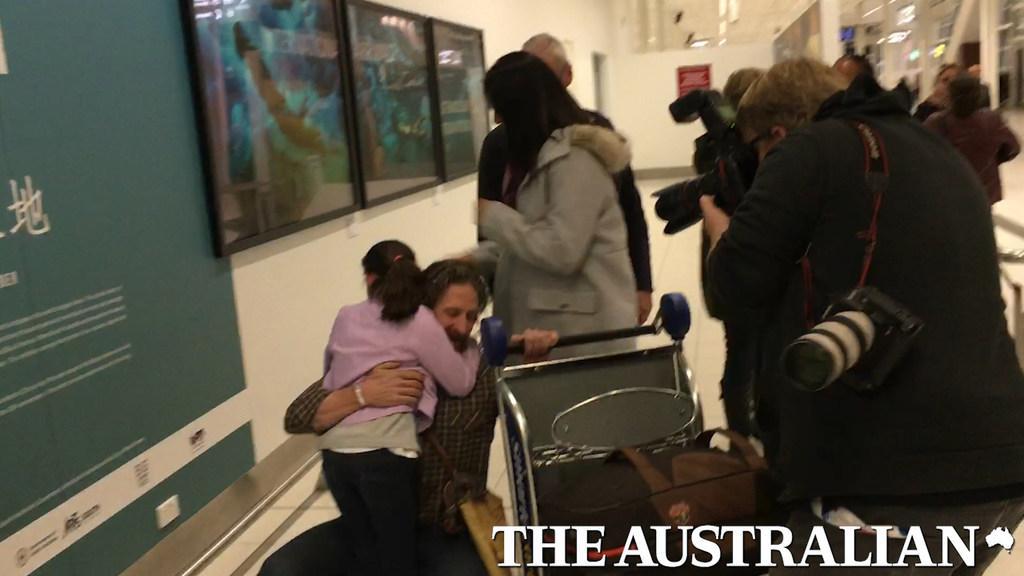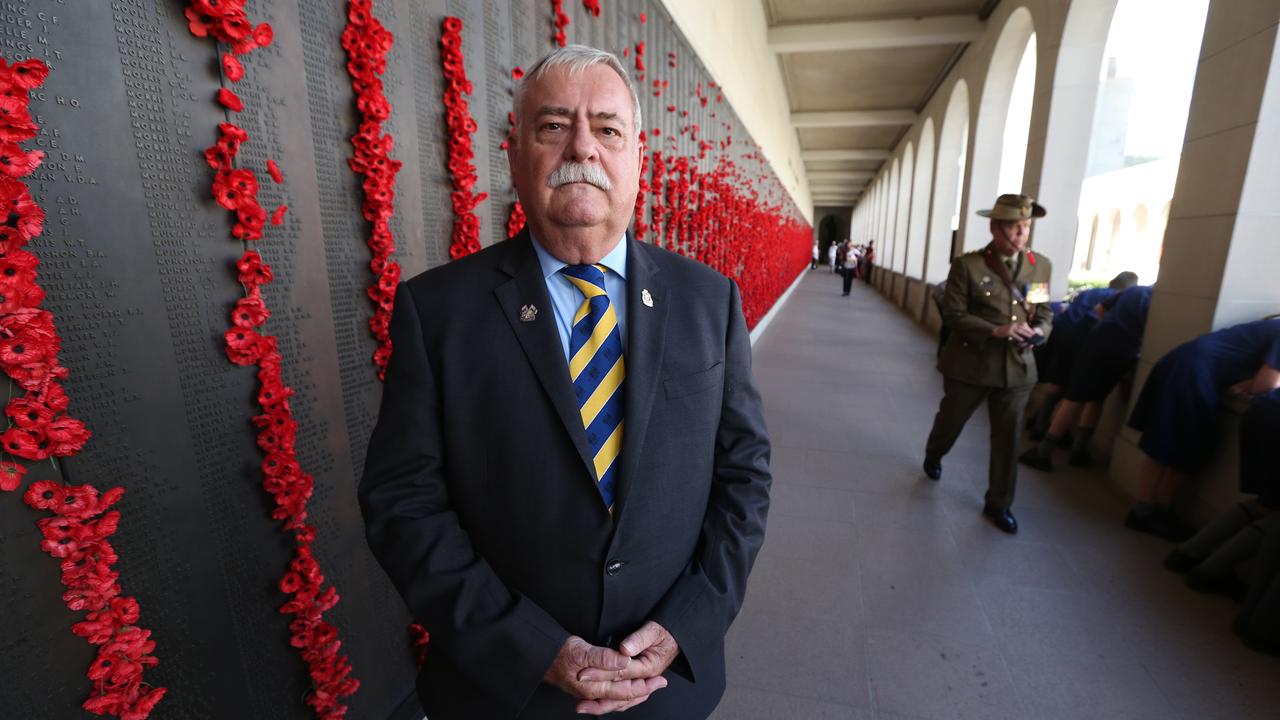Ex-Digger Robert Langdon’s return after Afghan pardon
Former Australian soldier who spent seven years in jail for the murder of an Afghan colleague returns home | WATCH

A former Australian soldier who has spent the past seven years in a Kabul jail for the murder of an Afghan colleague — a crime for which he was originally sentenced to death — arrived back in Adelaide last night after being quietly pardoned by the Afghan President.
Robert William Langdon, now 44, was convicted of murdering a security agency colleague during a dispute as they were escorting a convoy to a US military base in mid-2009.
Mr Langdon and the man he was alleged to have murdered, Karimullah, had been working for private US security firm Four Horsemen International.
After shooting Karimullah, it was alleged Mr Langdon tried to stage a fake Taliban attack in which he ordered other colleagues to shoot randomly into the air before he threw a hand grenade inside the vehicle in which Karimullah lay dead.
He was arrested at Kabul airport later that day as he was trying to leave the country.
Last night, Mr Langdon arrived back in his home state of South Australia with his US lawyer, Kimberley Motley.
Before arriving in Adelaide, Ms Motley said her client was upbeat. “He is in good spirits and is looking forward to being reunited with his family and friends,” she said. “We are pleased with this legal outcome because we recognise that everyone from Australia, Afghanistan, America and beyond is entitled to capable, competent, effective legal representation that will ensure their rights are fiercely protected and that includes Robert Langdon. From the beginning in 2009, this case was mishandled internally and externally within the Afghan ‘legal system’.”
Mr Langdon, who served with the ADF in East Timor and the Solomon Islands, had always claimed he was acting in self-defence. After a long legal struggle, Afghan President Ashraf Ghani pardoned him last month. He was released last week.
The US relied heavily on private security companies in its military intervention in Afghanistan. Mr Langdon’s case reflected the perils that existed for those who worked for foreign forces if they were caught up in Afghanistan’s justice system.
He served seven years in Kabul’s Pul-e-Charkhi prison, described to The Australian as “the worst place on Earth to be a white man”. Many inmates were Taliban fighters who had a hatred of Westerners, particularly those who had worked for the US military.
In a series of interviews with The Wall Street Journal, Mr Langdon said he passed on tips about al-Qa’ida and Taliban prisoners to the Australian embassy while in prison. The embassy said it did not comment on private discussions with consular clients but it provided assistance to Mr Langdon and raised his case often with Afghan officials.
He claimed he was attacked by other inmates because he was a foreigner and in the final months of his incarceration, he lived in a dark, grimy cell that reeked of sewage. He had a smuggled phone and an improvised blade and locked himself in his cell with a padlock for security.
Mr Langdon described the prison as an incubator for terrorism and said the inmates often planned attacks from inside the jail.
He also revealed he had contemplated suicide. “I don’t feel anything any more,” he told The Wall Street Journal yesterday. “I’m numb to everything now.”
His Australian lawyer, Stephen Kenny, who represented Australian David Hicks when he was incarcerated in the US prison at Guantanamo Bay, said yesterday Mr Langdon was “now a free man” and would not have to serve time in Australia.
He confirmed Mr Langdon had passed on information to Western forces that had saved lives.
He said an application originally had been made to former president Hamid Karzai for a pardon and it was followed up with his successor, Mr Ghani.
Mr Langdon’s family, many of whom are based in Port Augusta, 300km north of Adelaide, last night met him at Adelaide airport.
His sister Katie Godfrey said it “feels good, just beyond happy”.
The family has not seen Mr Langdon for more than eight years and had only intermittent contact by phone.
Amid allegations of mistreatment, they worried about his state of mind. “I think anyone who’s been incarcerated, you have to be concerned about their mental health,” Ms Godfrey said. Although the details of his case were confused, “at the end of the day we know what sort of person he is”.
“He is a hero to us,” said his mother, Noreen, referring to Mr Langdon’s co-operation with authorities.
“Throughout his life, when he was serving in the army, he would help people. He didn’t want the kudos, it’s just what he does.”
Despite his facing the death penalty initially, his mother and sister said they had never given up hope of seeing him come home.
“I thought, well if he gets home, he gets home,” said his father, Peter Langdon.
“Oh, he was always coming home, there was no doubt in my mind,” said Mrs Langdon.
“If you’d been locked up for seven years, what would you want to do?” she said. “We are focusing on tonight and tomorrow.”



To join the conversation, please log in. Don't have an account? Register
Join the conversation, you are commenting as Logout